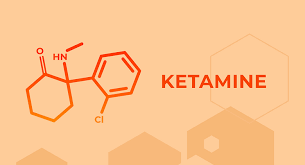In recent decades, the landscape of medical treatment Sugar Defender has undergone a transformative shift with the advent of targeted therapy. Unlike traditional therapies that broadly affect both healthy and diseased cells, targeted therapy precisely homes in on specific molecules or pathways crucial for tumor growth and survival. This precision offers promising outcomes with fewer side effects, heralding a new era in personalized medicine. In this article, we delve into the mechanisms, applications, and future prospects of targeted therapy in revolutionizing medical treatments across various diseases.
Understanding Targeted Therapy: At its core, targeted therapy operates by interfering with specific molecular targets involved in the growth, progression, and spread of diseases. Unlike chemotherapy, which can affect rapidly dividing cells indiscriminately, targeted therapy aims to selectively disrupt pathways unique to diseased cells while sparing healthy ones. This approach minimizes collateral damage and enhances treatment efficacy.
Applications in Oncology: One of the most significant breakthroughs in targeted therapy lies in oncology. By targeting genetic mutations or overexpressed proteins driving cancer growth, targeted therapies have revolutionized the treatment landscape for various malignancies. Examples include tyrosine kinase inhibitors (TKIs) in treating certain types of leukemia and lung cancer, monoclonal antibodies targeting HER2 in breast cancer, and inhibitors of BRAF mutations in melanoma. These therapies have shown remarkable efficacy in improving patient outcomes and prolonging survival.
Expanding Horizons Beyond Cancer: While oncology has been the primary beneficiary of targeted therapy, its applications extend beyond cancer treatment. In recent years, researchers have explored targeted therapies for autoimmune diseases, such as rheumatoid arthritis and inflammatory bowel disease, by modulating specific immune pathways. Similarly, targeted therapies hold promise in combating infectious diseases by disrupting essential viral or bacterial components.
Challenges and Future Directions: Despite the remarkable advancements, targeted therapy faces several challenges, including drug resistance, limited patient access, and high treatment costs. Overcoming these hurdles requires continued research into novel targets, innovative drug delivery systems, and strategies to mitigate resistance. Additionally, efforts to enhance patient stratification through biomarker identification and genetic profiling will optimize treatment selection and improve overall outcomes.
Conclusion: Targeted therapy represents a paradigm shift in medicine, offering precise and effective treatments across a spectrum of diseases. From oncology to autoimmune disorders and infectious diseases, the tailored approach of targeted therapy holds immense promise for improving patient outcomes and quality of life. As research and technological innovations continue to advance, the future of medicine lies in harnessing the power of targeted therapies to address unmet medical needs and usher in an era of personalized healthcare.






